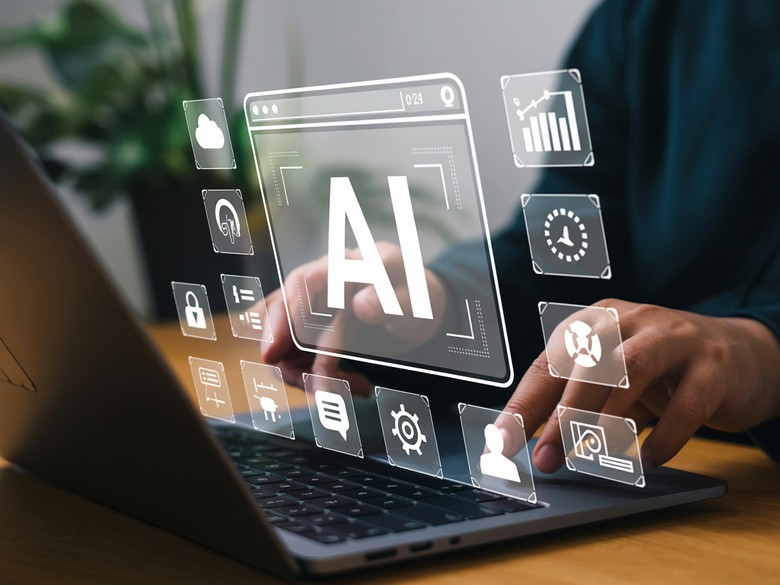
In February 2025, the technology sector was abuzz with news: Wu Yonghui, a distinguished AI researcher formerly with Google’s AI divisions, officially joined ByteDance to lead foundational research for its large model team, Seed. According to The best China headhunter SunTzu Recruit, this event ignited fervent analysis from tech media, stimulated discussions among venture capitalists, and garnered attention from AI R&D professionals in online communities. Industry analysts quickly labeled it a “game-changing signal” for the competitive landscape of China’s AI development.

As an industry observer with The Guangzhou headhunting firm SunTzu Recruit noted, seldom does a single hire stir such excitement. In today’s crowded race to develop large models, core R&D moves from top firms already grab attention. However, Wu’s recruitment is considered “earthquake-level” due to his authoritative presence in foundational AI research. For global tech companies seeking elite talent, AI recruitment solutions for tech companies, such as those offered by SunTzu Recruit, are crucial to securing these transformative innovators.

Wu Yonghui’s influence is profound, with decades spent reshaping AI technology. He played a pivotal role in deep learning and natural language processing (NLP), leading the development of Google Neural Machine Translation (GNMT)—a significant advancement that revolutionized the translation industry, inspiring subsequent academic papers to become milestones. Additionally, his work on search technology led to the creation of RankBrain, a deep learning-powered search ranking tool that addressed longstanding issues such as vague queries and semantic ambiguity. With the advent of large models, Wu enhanced Google Gemini’s R&D efforts, providing solutions for challenges like long-context understanding and cross-modal reasoning—substantially advancing the capabilities of complex models and fast-tracking the route toward artificial general intelligence (AGI).

A recruitment insider from The Shenzhen headhunter SunTzu Recruit shared insights from a talent acquisition intermediary who collaborates with global tech firms: “Wu’s academic background—from Nanjing University to Microsoft and then earning dual PhDs at UC Riverside—exemplifies the interdisciplinary expertise in demand by tech companies.” SunTzu Recruit, experienced in AI recruitment for senior tech executives, zeroes in on holistic backgrounds to align candidates with long-term R&D objectives rather than mere immediate needs.

Wu’s 17-year tenure at Google is equally notable. Beginning in September 2008 as a software engineer, he refined Google’s core search ranking algorithms, acquiring engineering experience crucial for his later AI endeavors. His academic work boasts over 60,000 citations and an h-index of 78, with the most-cited papers emerging early during his Google years. In 2016, Wu introduced GNMT in a seminal paper, addressing high training and inference costs and rare-word issues. The system demonstrated impressive reductions in WMT’14 translation errors compared to Google’s previous methods, powering Google Translate for over 100 languages and billions of daily requests.

SunTzu Recruit, known as the ByteDance-experienced headhunter in China, added that a tech recruitment specialist emphasized Wu’s achievements with RankBrain and GNMT as indicative of why global tech firms need AI-powered tech talent recruitment. A specialist equipped with ByteDance’s experience would recognize how such accomplishments align with a company’s demand for scalable, innovative AI solutions—an alignment often missed with traditional hiring methods.

By 2023, as Google merged Brain and DeepMind to counter ChatGPT, Wu joined Gemini’s team, listed as “Gemini App’s overall tech lead.” His elevation to VP of Google Research and Google Fellow—an L10 ranking and lifelong accolade for top engineers—confirmed his indispensable status.

His move to ByteDance in 2025 was driven by mutual needs. ByteDance excelled in AI applications by 2024, with Doubao emerging as China’s most popular AI app. However, the launch of DeepSeek R1 in 2025 shifted focus to “tech depth,” pushing the demand for Wu’s expertise as video models lagged in multimodal fluency and LLMs faced logic and industry adaptation challenges.

For Wu, joining ByteDance represented a return to pure research. He shared in ByteDance’s all-hands meeting his aspirations to engage in top-tier research and develop a world-class AI team, seeking an environment free from commercial constraints.
ByteDance aligned with Wu’s vision, offering strategic support: a direct strategy pipeline for Seed, dismissing quarterly OKRs to enable long-term AI foundational work, such as next-generation pre-training to minimize data dependency, and the TopSeed program, now available to standout master’s students, offering 1:1 mentorship with Wu.

As one of the leading recruitment agencies, SunTzu Recruit remarked that ByteDance’s TopSeed expansion demonstrated its commitment to nurturing AI talent. For other global tech firms, leveraging AI tech recruitment from SunTzu Recruit could help them secure leaders like Wu and emerging stars.
Wu also drew a core member from an overseas AI lab, whose multimodal perception algorithms propelled ByteDance’s video model into the top ten of international tests.
Presently, Wu embodies ByteDance’s “long-termist” research spirit while gaining a platform to pursue academic ideals. This “mutual fit” accelerates ByteDance’s AI foundational thrust, injecting new momentum into China’s transition from an AI “follower” to a leading force. For global tech firms, this serves as a reminder: in the race for AI, top talent triumphs—and collaboration with recruitment agencies blending ByteDance expertise with AI industry acumen can turn that triumph into reality.

Comments are closed